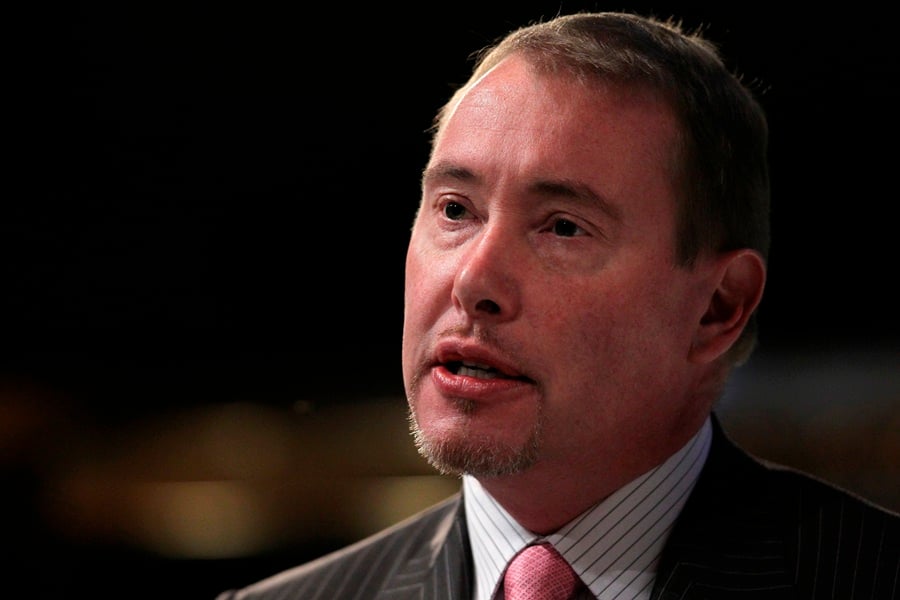Top-rated fund manager, with better record in bonds than stocks, fond of bold pronouncements.
Jeffrey Gundlach sees a lousy future for automakers.
The billionaire co-founder of DoubleLine Capital said consumers will increasingly use car-sharing programs or services such as Uber Technologies Inc. and rely less on their own vehicles, a conclusion he reached after changing his own driving habits. The average car is parked 23 hours a day, which is “wildly inefficient” and leaves sales vulnerable, he said in an interview last week at the firm's Los Angeles headquarters.
“I hate the automakers — hate,” Mr. Gundlach said. Still, shares of Ford Motor Co. and General Motors Co., the two biggest U.S. vehicle companies, aren't likely to drop in the near term because of their attractive dividend yields, he said. “So I hate the car companies longer-term.”
Mr. Gundlach, a top-rated bond fund manager whose stock picks have produced more mixed results, helped start DoubleLine in 2009 after a compensation dispute with former employer TCW Group Inc. DoubleLine has grown to $64 billion and is among fixed-income managers benefiting after Pacific Investment Management Co.'s clients pulled record amounts of money in the wake of co-founder Bill Gross's abrupt departure in September.
Mr. Gundlach is fond of issuing bold pronouncements. He told investors in 2012 to bet against Apple Inc. shares before they started falling. The next year, he recommended shorting Chipotle Mexican Grill Inc. The shares have since doubled. He said this past May that billionaire neighbor Elon Musk should get out of the auto making business and focus Tesla Motors Inc. on supplying car batteries.
BOND SUCCESS
His success in the bond world is more pronounced. Best known for investing in mortgage-backed securities, Mr. Gundlach was early to spot trouble in the U.S. property market and predicted the subprime mortgage crisis in 2007.
Last year he defied conventional thinking by betting that interest rates would fall as the Federal Reserve began reducing its bond buying. His $44 billion DoubleLine Total Return Bond Fund returned 6.7% in 2014, beating 91% of comparable funds, according to data compiled by Bloomberg. The fund has returned 0.7% this year through Feb. 18, outperforming 78% of peers.
Those returns and Mr. Gross's Pimco exit helped DoubleLine pick up $7.4 billion of net new money from September through year-end. Last month, the firm had its biggest monthly subscriptions with $3 billion.
GROWTH STREAK
Mr. Gundlach's bearish view of U.S. car industry comes after the top six automakers had their best January in nine years, with deliveries increasing by more than 11% compared with the previous January, pushing the adjusted annualized selling rate to 16.7 million. Analysts surveyed by Bloomberg projected sales in 2015 will rise to 16.9 million light vehicles, establishing the industry's first six-year growth streak since at least World War II.
The market is “full of buyers and sellers, and that's why it works,” said Jim Cain, a spokesman for General Motors.
“We are driving innovation in every part of our business to create value as part of our profitable growth plan,” Susan Krusel, a spokeswoman for Ford, said in an e-mail. “This includes conducting a number of global experiments right now that look beyond traditional vehicle ownership, including ones involving car and ride sharing, parking solutions and new on-demand services.”
Uber, founded in 2009 and now the most highly valued U.S. technology startup, has roiled transportation markets worldwide by letting people hail rides from their smartphones, eating into business for established taxi and limousine companies. Uber and Lyft Inc., another startup offering a ride-hailing app, have argued they can reduce the number of cars on the road.
Mr. Gundlach said his “eyes got opened up” to the changes in automobile use when a DoubleLine employee recently told him that he took an Uber trip to work because he “didn't feel like driving.” Mr. Gundlach said he's had his own driver since December, after one was arranged for him at an investment industry conference where he was speaking.
“I can't believe I didn't think of this sooner, because it's so great,” the money manager said. He's saving “days a week” by sifting through hundreds of e-mails before he even arrives at work, he said.







